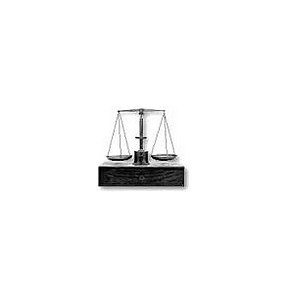Best Bankruptcy Lawyers in Tallinn
Share your needs with us, get contacted by law firms.
Free. Takes 2 min.
List of the best lawyers in Tallinn, Estonia
About Bankruptcy Law in Tallinn, Estonia
Bankruptcy law in Tallinn, Estonia, follows the practices typically found in other European Union countries. When a company cannot meet its monetary obligations, it may declare bankruptcy. After filing, there is an assessment period by a court-appointed trustee - if the company is indeed insolvent, the court then oversees the liquidation or reorganization to repay creditors. For individuals in Tallinn who are unable to repay their debts, personal bankruptcy is an option, often involving the sale of non-exempt assets to settle the debts.
Why You May Need a Lawyer
Despite the fact that declaring bankruptcy can provide relief from overwhelming debt, the process can be incredibly complex. It involves navigating stringent rules, complex paperwork, and legal negotiations. A lawyer can guide you through the process, ensuring you understand your rights, and represent you in court. They can also strategically help you to minimize the impact on your credit record. It’s helpful to have this expertise when interpreting Estonian bankruptcy law and understanding your options.
Local Laws Overview
The Bankruptcy Act is the main piece of legislation governing bankruptcy in Estonia. According to this act, a debtor may be a legal person, a self-employed person, or a deceased insolvent estate. It stipulates that bankruptcy proceedings begin with a bankruptcy petition, which can be lodged by either the debtor or the creditor. The Court takes into account all the debtor's assets and liabilities when making a decision about their bankruptcy status.
Frequently Asked Questions
1. How long does the bankruptcy process take in Tallinn, Estonia?
The duration of bankruptcy procedures varies, but it typically takes between six months to a few years, depending on the complexity of the situation.
2. Does filing for bankruptcy remove all debts?
Not all debts are erased in bankruptcy. Obligations such as alimony, child support, and certain tax obligations are generally not wiped out.
3. Can one keep any property after declaring bankruptcy?
This largely depends on whether the property is considered exempt or non-exempt. Exempt assets may include things like basic household goods and a portion of the equity in your home.
4. What is the impact on my credit after filing bankruptcy?
Bankruptcy will affect your credit rating and can stay on your credit history for a number of years. However, rebuilding credit is possible with responsible financial behavior post-bankruptcy.
5. Can I file for bankruptcy more than once?
Yes, there is no limit to the number of times you can file for bankruptcy, but there are time limits between filings for the debt discharge to be successful.
Additional Resources
The Ministry of Justice Estonia and the Estonian Chamber of Bankruptcy Trustees are excellent resources for further information about bankruptcy law in Estonia. They offer extensive advice and guidelines, as well as important documents related to bankruptcy.
Next Steps
If you believe you are in need of legal assistance for bankruptcy, you should consult with a local bankruptcy attorney or legal clinic. They can discuss your financial situation, guide you through possible options, and represent your interests if you decide to proceed with a bankruptcy filing.
Lawzana helps you find the best lawyers and law firms in Tallinn through a curated and pre-screened list of qualified legal professionals. Our platform offers rankings and detailed profiles of attorneys and law firms, allowing you to compare based on practice areas, including Bankruptcy, experience, and client feedback.
Each profile includes a description of the firm's areas of practice, client reviews, team members and partners, year of establishment, spoken languages, office locations, contact information, social media presence, and any published articles or resources. Most firms on our platform speak English and are experienced in both local and international legal matters.
Get a quote from top-rated law firms in Tallinn, Estonia — quickly, securely, and without unnecessary hassle.
Disclaimer:
The information provided on this page is for general informational purposes only and does not constitute legal advice. While we strive to ensure the accuracy and relevance of the content, legal information may change over time, and interpretations of the law can vary. You should always consult with a qualified legal professional for advice specific to your situation.
We disclaim all liability for actions taken or not taken based on the content of this page. If you believe any information is incorrect or outdated, please contact us, and we will review and update it where appropriate.














